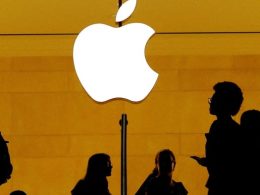Stay informed with free updates
Simply sign up to the Technology sector myFT Digest — delivered directly to your inbox.
The writer is chief executive of Lateral Economics, a consultancy, and visiting professor at King’s College London
Mario Draghi’s assessment of EU competitiveness last year highlighted Europe’s failure to capitalise on the internet revolution. Over the past two decades, Silicon Valley’s runaway tech sector has accounted for most of the difference between US and European productivity growth.
But if US tech dominance was helped by its freer market, Europe’s mixed economy could help it create a new sort of internet success story. This is because the internet, and the services that many private companies provide on it, is a public good.
Economics teaches that public goods are a problem. Public amenities like paved roads are expensive to build but freely available to all. They cannot be adequately funded privately so governments must fund them instead.
On the internet, the economics of public goods are transformed. By bringing billions of people within a mouse-click of any online service, the internet so lowered the cost of digital services that what I call “public goods of opportunity” now abound. These are digital services that are freely available but privately provided and funded via advertising (Google Search and Facebook), or even donations (Wikipedia).
European governments could advance this model by establishing digital public-private partnerships. For example, a government could “bulk purchase” standard online accounting services so its citizens and small businesses could access them for free. One might do the same with other standard online services, for example in payroll or employee engagement. As well as lowering business costs, the market dominance held by the free provider would give it a rich database which could be mined for value.
Take health. In contrast to the dysfunctions of the US private health insurance market, Europe’s strong public involvement in health makes it well placed to develop such a public-private model in digital health partnerships.
The financially imperilled US genetic-testing company 23andMe hosts data about your genome to help you understand your health susceptibilities and ancestry. If its tests were free it would go broke, so they’re provided for a fee — as a private, not a public good.
But like Google or Wikipedia, a similar model could generate more value as a free public good. Europe’s public health systems could fund testing and become custodians of the resulting data. The resulting online system could be a new public good: a data utility.
Accordingly, more people would participate. With the data secure (and anonymised where appropriate) a giant new genomic database could then inform diagnosis, management and healthcare research. (23andMe would become just one of many services competing on the platform). This in turn would spur advances in personalised medicine, improving lives and aiding industry development.
And what of bad behaviour on freely provided social media? While the US debates regulation necessary to minimise its worst harms, there’s another agenda that Europe could explore. If governments step in with a role in privately provided public goods online, there is a chance that they could take a more active role in tackling the profit-maximising algorithms on social media.
We know algorithms on social media dumb down discussion and ramp up outrage to maximise profits. But can we build social media around algorithms that improve discussion? Europe’s mixed economy could support this via state institutions with broad social and cultural missions — for instance universities and publicly funded broadcasters.
Public goods of opportunity could help deliver the productivity growth that Draghi tells us is so urgent. By reinventing traditional government-funded public goods in a digital world, Europe can create the next generation of internet success stories.
Source link









